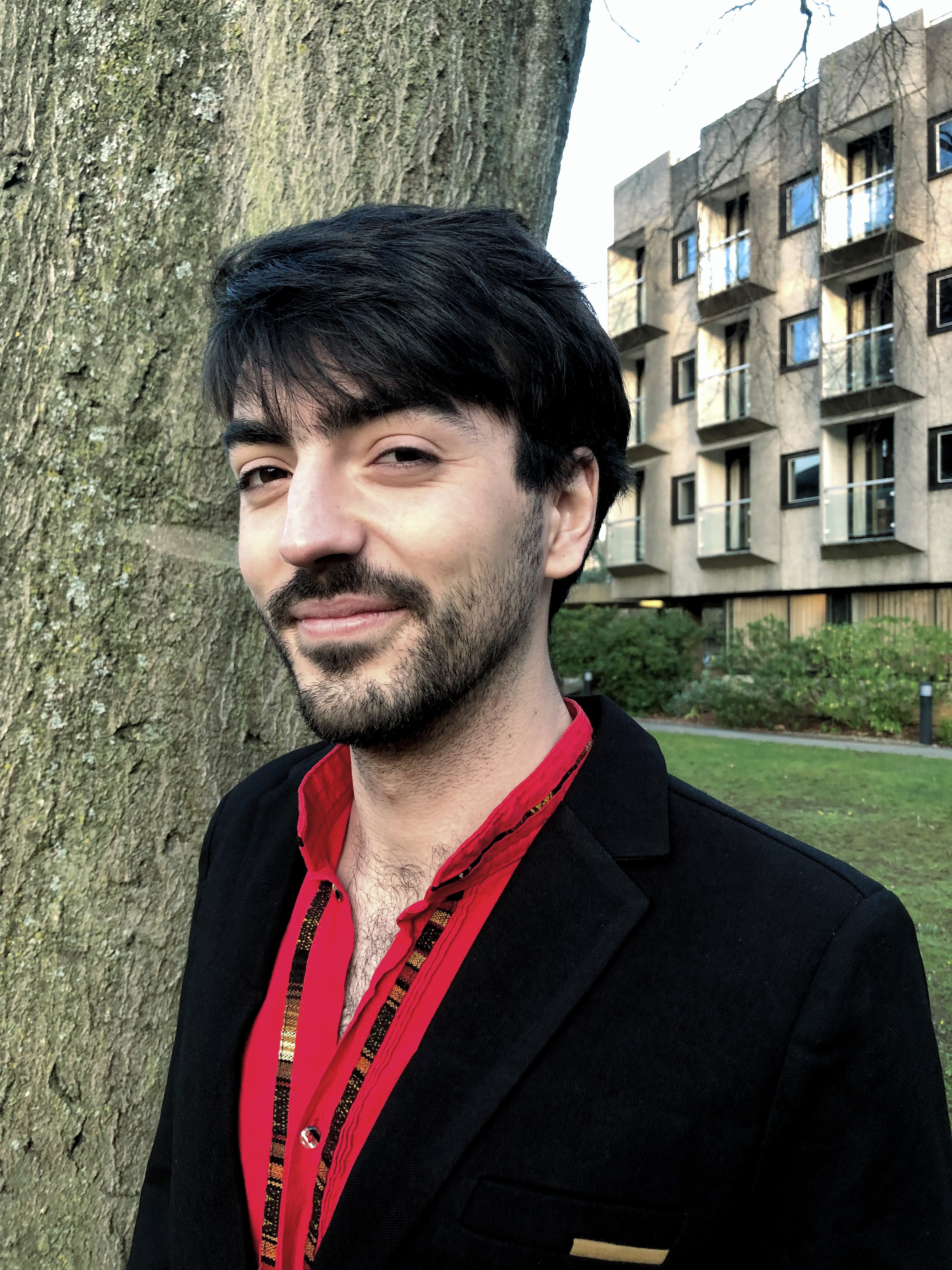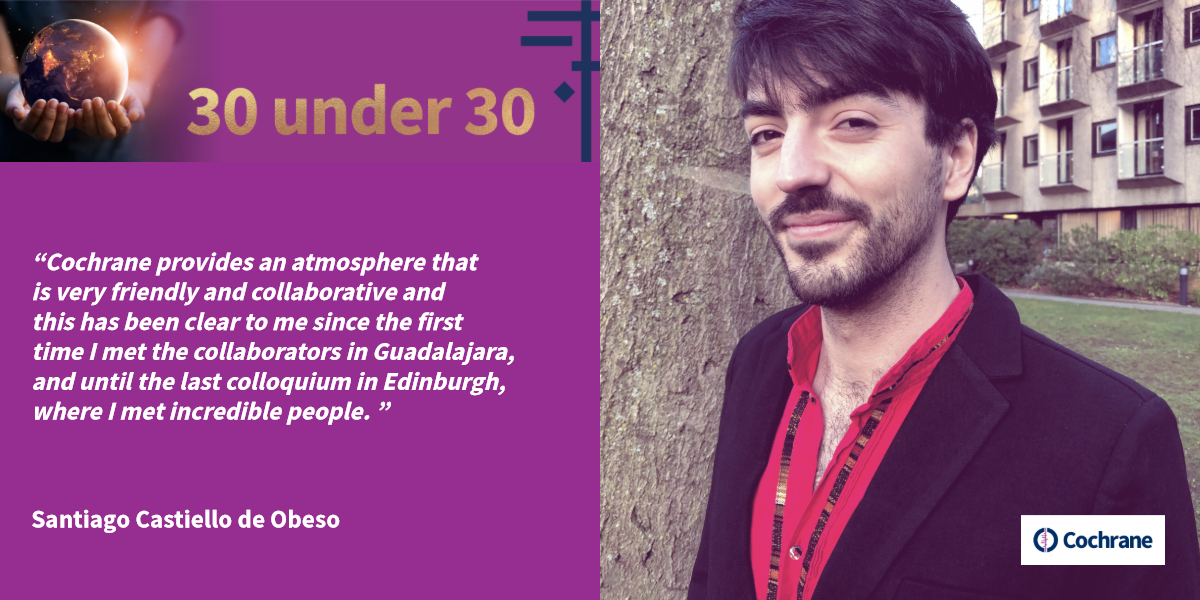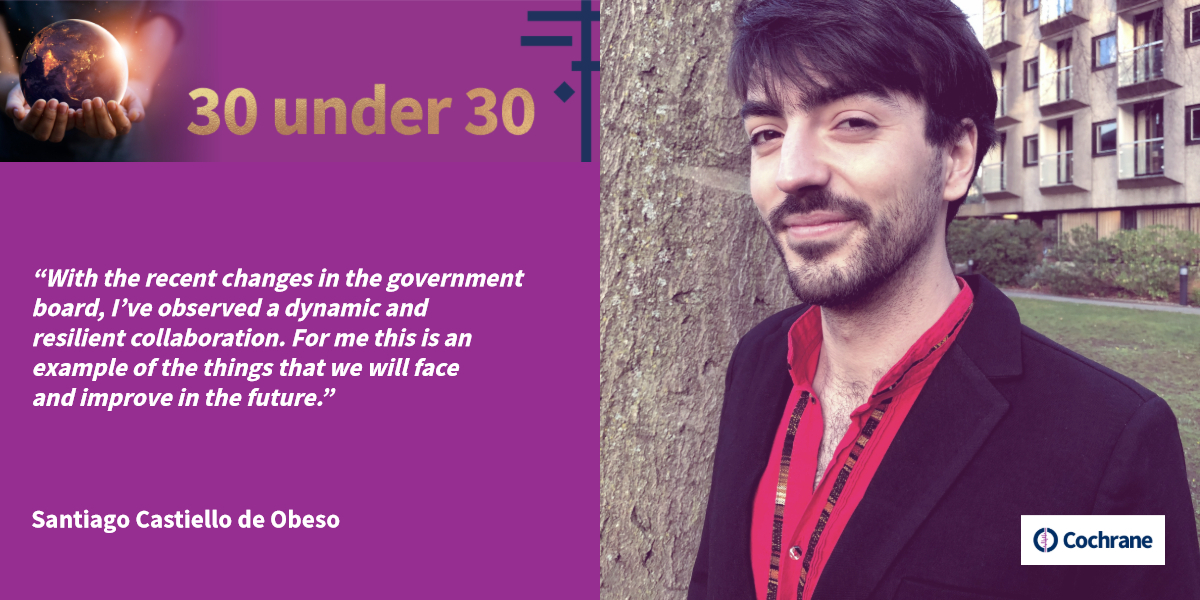
Cochrane is made up of 13,000 members and over 50,000 supporters come from more than 130 countries, worldwide. Our volunteers and contributors are researchers, health professionals, patients, carers, people passionate about improving health outcomes for everyone, everywhere.
Cochrane is an incredible community of people who all play their part in improving health and healthcare globally. We believe that by putting trusted evidence at the heart of health decisions we can achieve a world of improved health for all.
Many of our contributors are young people working with Cochrane as researchers, citizen scientists, medical students, and volunteer language translators and we want to recognize the work of this generation of contributors as part of this series called, Cochrane’s “30 under 30."
In this series, we will interview 30 young people, 30 years old or younger who are contributing to Cochrane activities in a range of ways, all promoting evidence-informed health decision making across the world.
We will be hearing from them in a series of interviewees published over the coming months.
We're keen to hear from you. Would you like to take part in this series? Do you know someone you'd like to see interviewed? Contact kabbotts@cochrane.org. Or if you want to know more about Cochrane’s work contact membership@cochrane.org where our community support team will be happy to answer your questions.

Name: Santiago Castiello de Obeso (on Twitter @psscdo)
Age: 27
Occupation: Full-time DPhil (PhD) student researcher; Member of Cochrane Mexico; and author with Cochrane Schizophrenia
Program: DPhil in Experimental Psychology, Department of Experimental Psychology, University of Oxford; and Cochrane Schizophrenia
How did you first hear about Cochrane?
Five years ago, in Mexico when I was studying for my bachelor’s degree in psychology, a close friend commented about Cochrane and the work done in producing high quality meta-analysis for health care interventions, as well as their advantage compared to other research and studies. The idea of assembling the body of evidence for a particular intervention to assess his efficacy fascinated me. Afterwards, I began researching Cochrane and strongly identified with their goal: providing the best possible evidence for improving decision-making in health care. My interest in Cochrane grew and I became enthusiastic to learn more about the collaboration. I decided to get involved and contacted Cochrane Schizophrenia (which works with my topics of interest).
How did you become involved with Cochrane? What is your background?
I contacted Cochrane Schizophrenia when a friend and I decided to conduct a Cochrane Review on schizophrenia. We decided to look for support from Cochrane authors that lived in our city and that had previous experience with systematic reviews. We contacted and met the Cochrane community in Guadalajara, Mexico. This was a small, Cochrane community composed by young physicians, still in training but very enthusiastic, welcoming and open to new ideas. I liked the idea of collaboration that they had, where they prioritised collaborative team work before individual goals.
In relation to my background, I completed a bachelor’s degree in Psychology at ITESO Jesuit University of Guadalajara, and then a Masters in Behavioural Sciences at the University of Guadalajara. I am currently working towards a doctorate in Experimental Psychology at the University of Oxford, where I am researching and studying about Schizotypy and Schizophrenia.
What do you do in Cochrane?
In Cochrane Mexico, I have worked in all the four goals of Cochrane: we organized workshops, contacted and discussed with policy makers to disseminate the work of the collaboration. Also, I like to help other Cochrane collaborators around the world, for instance by conducting screening of Spanish studies.

What specifically do you enjoy about working for Cochrane and what have you learnt?
When I worked on my first Cochrane review, I highly enjoyed the time we spent working on the weekends. We ordered food, drank some beers, read clinical studies, and learned and discussed a significant number of stats and methodology. I can assure future authors that, it could be very amusing to produce a Cochrane review. Also, I’ve rejoiced with enthusiasm motivated to create a world with better evidence for health care decision-making. Cochrane provides an atmosphere that is very friendly and collaborative and this has been clear to me since the first time I met the collaborators in Guadalajara, and until the last colloquium in Edinburgh, where I met incredible people.
What are your future plans?
After finishing the DPhil, my plan is to get back to Mexico. There, I want to be lecturer of Evidence-Based Health Care, start a lab of Computational Psychopathology, and continue working with Cochrane. In addition, I plan to engage professionals and leaders involved in the health policy decision-making to establish partnerships for Cochrane.
In your personal experience, what one thing could Cochrane do better to improve its global profile?
Overall, I admire the direction and orientation of the collaboration, the Strategy to 2020 describe the needs of Cochrane very accurately: producing evidence, make it accessible, advocate for it, and building a sustainable organization. However, one aspect I have observed in my personal experience, is that when I try to share Cochrane Reviews to family and friends, the reviews are too technical. We could aim to produce brief and accessible summaries that make it easier for the general public to understand.
What do you hope for Cochrane for the future?
I hope that more people get involved. There is a lot work to do that needs to be done! I also expect that we can influence more and aid in the development of other sciences (environmental and ecological sciences). With the recent changes in the government board, I’ve observed a dynamic and resilient collaboration. For me this is an example of the things that we will face and improve in the future. I am very glad that Cochrane has this internal dynamism. I think, it’s a good example for young people and we could learn a lot from it.
How important is it that young people get involved in Cochrane? Why is this, do you think?
Very important. I believe that one of the most important things that Cochrane can transmit to young people, or at least that I have learnt from Cochrane, are values and vision. Two of the values i believe are very important are collaboration; help anyone because we have bigger goals as a group; and honesty; report data and conflicts of interest as they are - try to not jump to conclusions with the results, just describe them.

What would your message be to other young people who want to get involved with Cochrane’s work but not sure where to start….?
If you want to start and you don’t know where and how, contact me (santiago.castiello@st-annes.ox.ac.uk). I am happy to arrange a videocall and I can listen to you and explain in detail my experience and the opportunities. We all start with no prior knowledge, only the will to learn and help. Also, if you had a Cochrane group in your country, contact them, I am sure they are doing something interesting.


